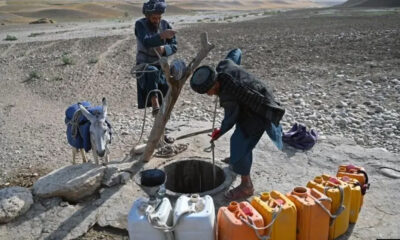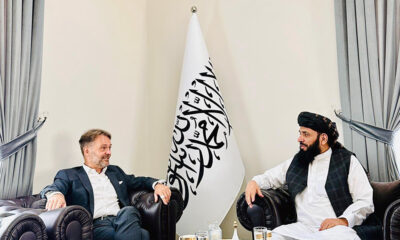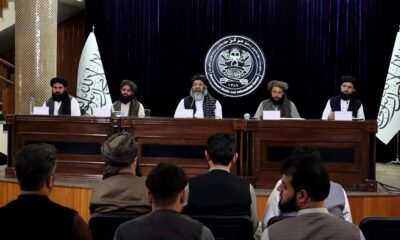Latest News
Afghan consulate in Istanbul handed over to IEA
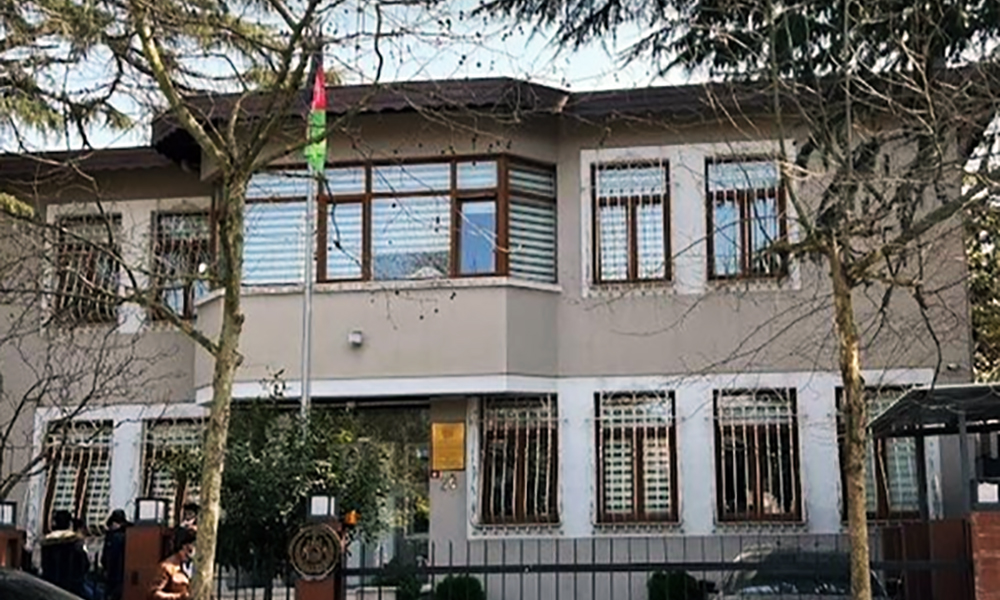
The Ministry of Foreign Affairs of Islamic Emirate of Afghanistan (IEA) said in a statement on Tuesday that the diplomats sent by the Islamic Emirate to Tehran have officially started their work at the Consulate General of Afghanistan in Istanbul.
“The representatives of the Ministry of Foreign Affairs are trying to act transparently in the field of providing necessary consular services for Afghan refugees there,” the statement read.
The Ministry of Foreign Affairs says that the Afghan consulate in Istanbul has been handed over to diplomats sent by the Islamic Emirate.
“Diplomats on mission have officially started their work at the Consulate General of Afghanistan in Istanbul, Turkey,” read the statement.
“In addition to the special and important diplomatic relations between the Islamic Emirate and Turkey, the presence of thousands of Afghan refugees in Istanbul has added to the importance of this city and forced the government representatives to act transparently in the field of providing consular services,” the statement stated.
Zia Ahmad Takal, Deputy Spokesperson of the Ministry of Foreign Affairs says that: “Diplomats sent by the Ministry of Foreign Affairs officially started their work on Monday at the Consulate General of Afghanistan in Istanbul, Turkey. The Ministry of Foreign Affairs is trying to provide consular services with responsibility and transparency.”
Zakir Jalali, adviser to the Ministry of Foreign Affairs of the Islamic Emirate, wrote in a tweet on Monday that after Tehran, the Afghan Consulate in Istanbul has also handed to the Ministry of Foreign Affairs of the Islamic Emirate.
Jalali wrote that the responsibility of the Afghan consulate in Istanbul has been officially handed over to the Islamic Emirate team led by Golmat Khan Zadran.
At the same time, politicians say that the handover of Afghan embassies and consulates to the Islamic Emirate makes the government’s responsibility heavier.
According to the politicians, this action, along with the improvement of relations between Kabul and Istanbul, can be effective in addressing the challenges facing the Afghan refugees in a timely manner.
A number of countries such as Russia, Pakistan, China, Iran and Turkmenistan, which have close relations with the Islamic Emirate of Afghanistan, have accepted the diplomats of the Islamic Emirate.
Experts say that handing over the political and diplomatic offices of Afghanistan one after the other to the Islamic Emirate, the Afghan government takes another step closer to recognition.
This is while the Afghan embassy in Tehran was officially handed over to the Islamic Emirate on Monday
The Ministry of Foreign Affairs of Afghanistan has introduced Fazl Ahmad Haqqani as the Chargé d’affaires of Afghanistan in the embassy in Tehran.
Latest News
OCHA warns of intensifying water crisis in Afghanistan
OCHA noted that while some areas of Afghanistan have seen rainfall approaching average levels, overall precipitation remains significantly below normal.
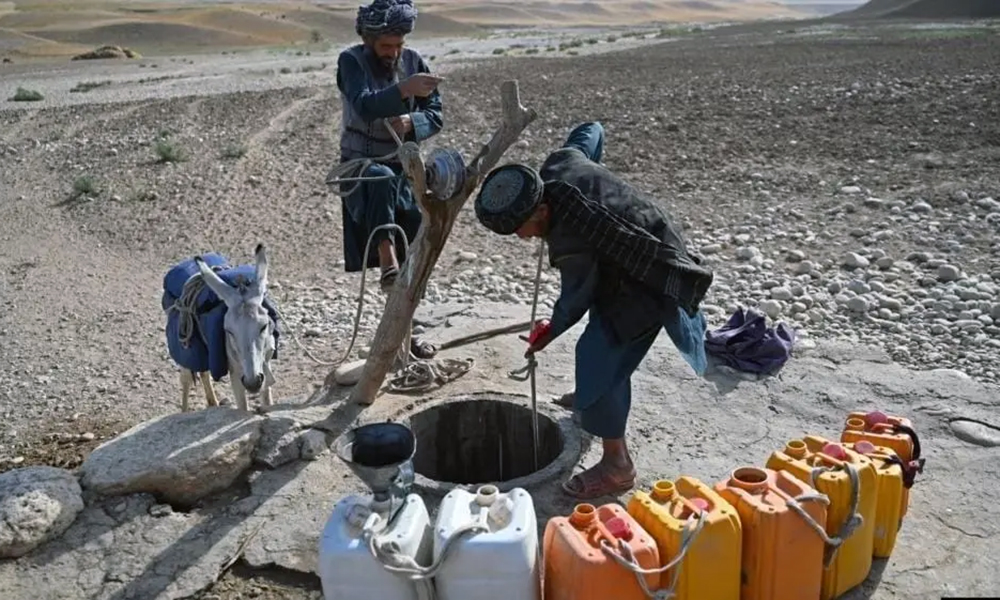
The United Nations Office for the Coordination of Humanitarian Affairs (OCHA) has issued a warning about the worsening water crisis in Afghanistan, citing below-average rainfall across much of the country.
In a recent report, OCHA noted that while some areas of Afghanistan have seen rainfall approaching average levels, overall precipitation remains significantly below normal.
Snowmelt volumes in most river basins are also lower than average and continuing to decline—further aggravating the water shortage.
OCHA highlighted that data from the Agricultural Stress Index (ASI) indicates markedly reduced vegetation growth in many regions, signaling the onset of drought conditions.
The agency also reported that soil moisture at root depth is critically low in most parts of the country, with the exception of some northern and northeastern provinces.
This poses serious concerns for agricultural productivity.
OCHA added that land surface temperatures across Afghanistan are above average, apart from limited areas in the northeastern provinces.
Forecasts suggest that above-average temperatures and below-normal rainfall are likely to persist in the coming months.
These conditions, the report warns, are expected to intensify the water crisis, leading to further declines in crop yields and damaging pasturelands vital for livestock.
As of March, this year, the provinces of Faryab and Jawzjan in northern Afghanistan have been identified as the most severely affected by reduced precipitation and rising temperatures. Other areas at critical risk include Helmand in the south, Herat in the west, Kunduz in the northeast, and Nangarhar in the east.
Afghanistan has been grappling with severe drought and declining rainfall for several consecutive years.
The prolonged droughts have depleted water supplies across the country, including in major urban centers, leaving many communities with limited access to safe drinking water.
The country is also increasingly vulnerable to extreme weather events, including flash floods, and remains one of the most climate-vulnerable nations in the world—despite contributing minimally to global greenhouse gas emissions and climate change.
Latest News
IEA urges France to reopen its embassy in Kabul
Shaheen emphasized to the French diplomat that “it would be better for France to reactivate its political presence in Kabul.”
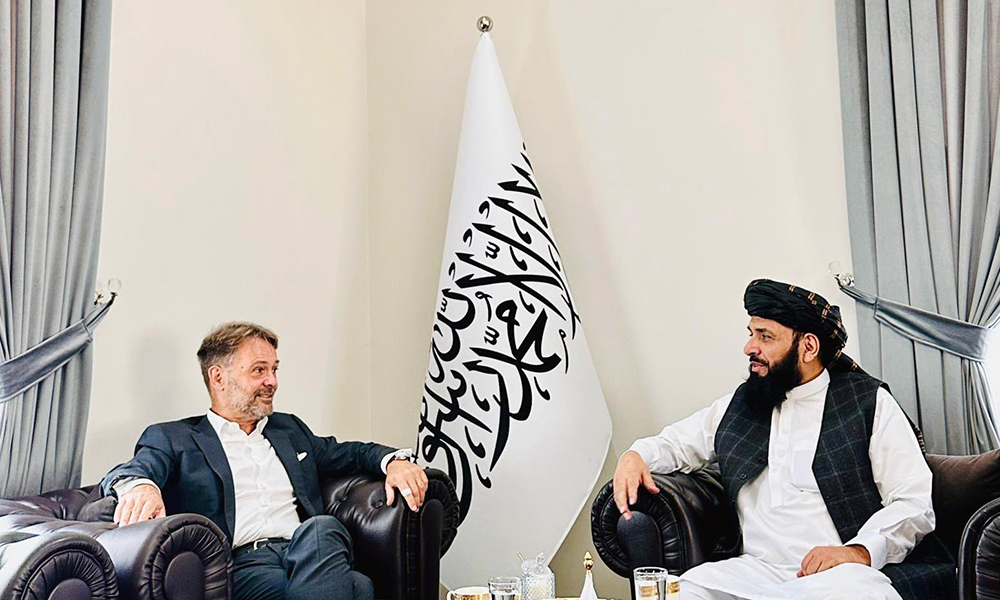
Suhail Shaheen, Acting Head of the Afghan Embassy in Qatar, has called on France to reopen its embassy in Kabul.
According to the embassy the request was made during a meeting between Shaheen and Jean-Marie Chau, the French Charge d’Affaires for Afghanistan and that the two sides discussed a range of issues including the political situation, bilateral relations, humanitarian assistance, and cooperation in preserving Afghanistan’s cultural heritage.
Shaheen emphasized to the French diplomat that “it would be better for France to reactivate its political presence in Kabul.”
France closed its embassy in Kabul following the return of the Islamic Emirate to power in August 2021.
Latest News
IEA to establish ministry for usurped land reclamation
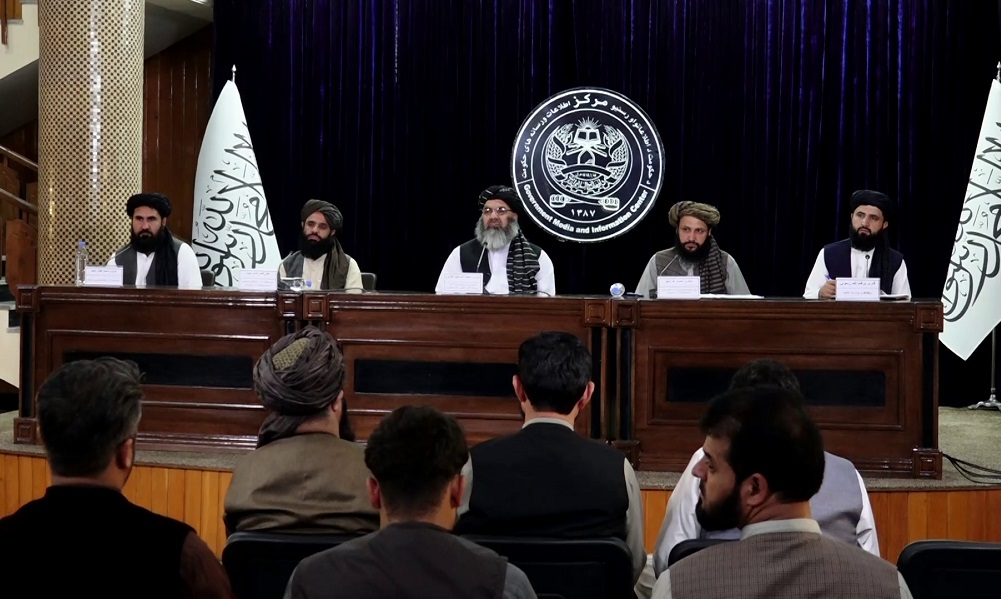
The Ministry of Justice said on Sunday that the Supreme Leader of the Islamic Emirate has issued a decree to establish a new ministry under the name of usurped land reclamation.
Currently, the work of reclamation of usurped land is being carried out by a commission.
The commission said in a press conference that 49.7 million acres of usurped land have been identified across the country, of which 3.9 million acres have been reclaimed.
Officials of the commission stated that 36 residential townships in Kabul have been assessed and decisions have been issued on 13 of them.
According to officials, people who have purchased land in illegal townships have all their rights reserved with the commission and only township owners are considered as usurpers.
They also stated that 370,000 acres of land have been allocated for the Kabul New City project and that currently, four companies are involved in this project.
-

 Latest News5 days ago
Latest News5 days agoIslamic Emirate of Afghanistan ‘concerned’ over rising tensions between Pakistan and India
-
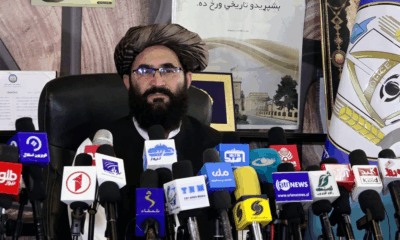
 Latest News5 days ago
Latest News5 days agoPassport Directorate earns nearly 13 billion AFN in one year
-

 Health5 days ago
Health5 days agoWHO confirms second Polio case in Afghanistan
-

 Regional4 days ago
Regional4 days agoIndia dismisses report of Pakistan downing jets as “disinformation”
-

 Latest News5 days ago
Latest News5 days agoUNAMA seeks over $400 million to support returnees to Afghanistan in 2025
-
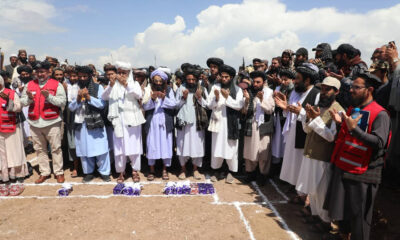
 Latest News5 days ago
Latest News5 days agoNew residential township for Afghan returnees to be built in Paktia Province
-

 Sport4 days ago
Sport4 days agoAriana Television to broadcast 4th edition of Afghanistan Futsal Premier League
-
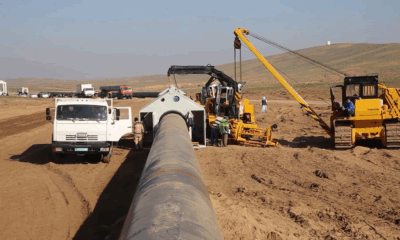
 Latest News4 days ago
Latest News4 days agoTAPI pipeline to reach Herat by end of 2025: Ministry


